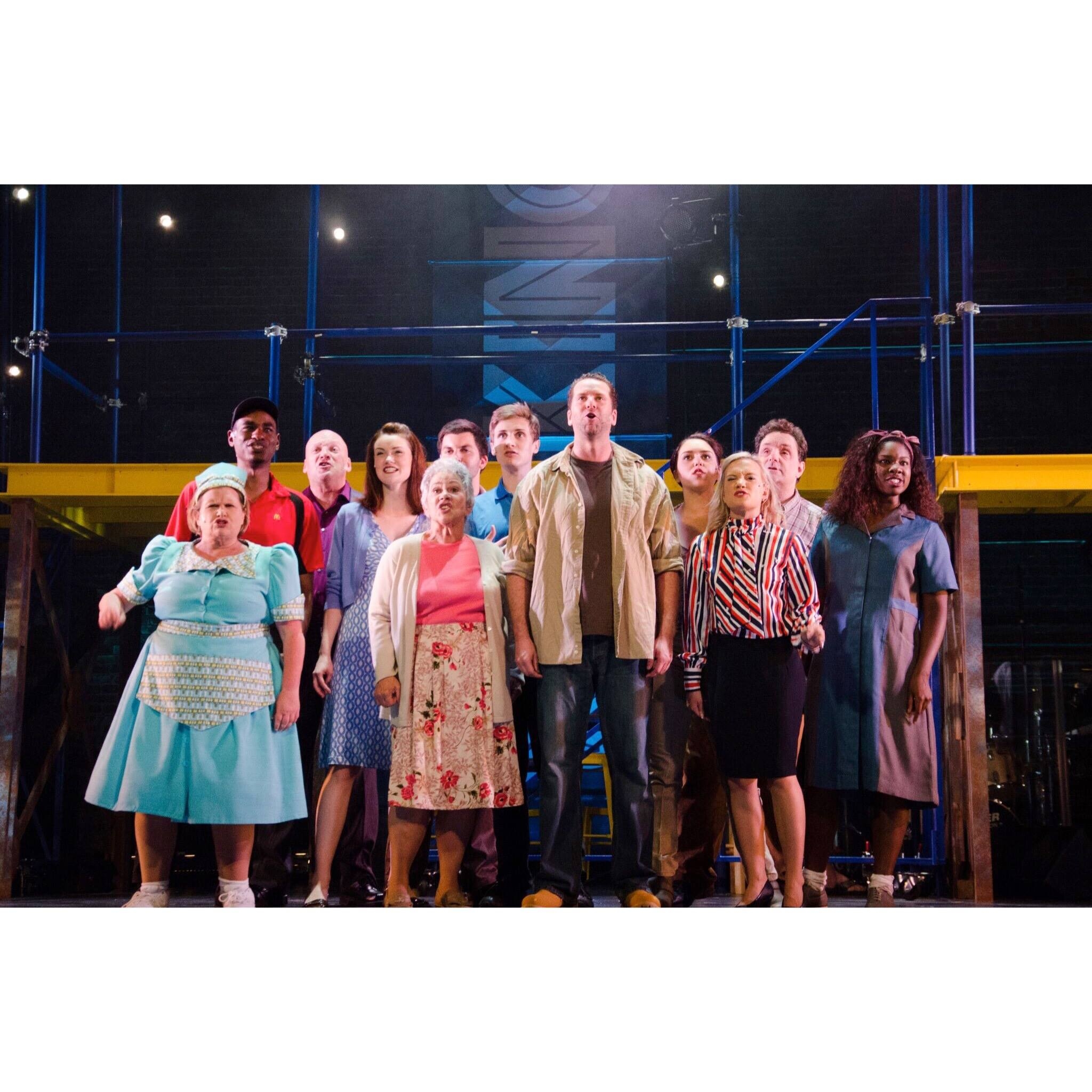In 1974, America was post-Watergate; Nixon was out, and the disastrous economy under Carter was yet to come. The Vietnam War was over. Civil Rights had been won in the courts and the legislature, if not in the culture at large. Working class people had a political party that served their interests, and they could earn a living wage and be proud of the lives they could make from their labor.
From that era emerged celebrated Chicago radio journalist Studs Terkel’s third “We-the-People” oral history book, Working: People Talk About What They Do All Day and How They Feel About What They Do. A few years after its publication, Stephen Schwartz (later famous for Wicked) turned it into a commercially unsuccessful musical.
Since then, Working has been updated and revived multiple times, and yet in 2017, in Southwest Michigan, it feels especially irrelevant.
Working opened Hope Summer Repertory Theatre’s 46th Season Wednesday night at Knickerbocker Theatre in Holland, and in his curtain speech, Director Fred Tessler explained that the season is dedicated to the American Dream, as an antidote to these divisive, tumultuous times.
It’s a nice conceit. As is the adaptation and reworking of Terkel’s collection of oral histories and the musical itself that is a pastiche of composers including James Taylor and Lin-Manuel Miranda, among others. But despite that promising conceit, and some strong performances, HSRT’s Working just doesn’t work.
This is largely because of the show’s book as well as the book on which it’s based. Aside from its anachronisms, it lacks a narrative arc, the song and dance numbers are not so much scenes as they are monologues, and transitions are practically nonexistent. The script needs a Studs Terkel narrator to help it hang together, to leave the audience with a sense of the show having had something to say. This is also a well-documented criticism of Terkel’s 1974 book: it contains lots of information and no one to make meaning of it.
The 25 characters in the musical who do have their say in monologues and song and dance numbers include a fireman, an ironworker, a truck driver, a stone mason, a waitress, a teacher, a prostitute, and a housewife, and they’re all performed by a cast of 12.
Chip DuFord is the only Equity actor of the bunch, and his charming command of the two characters he plays is exceptional. Other standout performances include Madeline Jones’s soulful rendition of “Cleanin’ Women” and Donna Federico’s rich “Nobody Tells Me How.”
The songs are mostly forgettable and not cohesive — having been composed by six different people at various times throughout the nearly 40 years of the show’s various iterations; and much of the singing is flat and lacking vibrato; however, the orchestra, a live band composed of a keyboard, standup bass, drum kit and guitars directed by Alex Thompson are downright stellar. Joe Niesen’s choreography is also quite excellent — well suited to the actors’ skill level and adapted to the music that runs the gamut from Latin-inspired to hip hop to folk and R&B. And of the cast, Rakeem Lawrence is a particularly good dancer.
Technically, Brian Bembridge’s set design honors an industrial look and feel with the exposed brick walls of the backstage dressed with a blue and yellow scaffolding-like platform with three moveable staircases the actors manipulate for transitions between numbers. And Stephen Sakowski’s bold lighting design does much of the heavy lifting in denoting scene changes.
Surely there’s irony in witnessing the the very real, very hard labor of a largely talented cast and crew put on a show about American workers and have it fall flat. But America and the world have changed too much. Globalization, immigration and technological advances have radically changed work and the people who do it from the time when the show was first conceived. It will take much more than the removal of obsolete professions such as typist and the addition of a hedge fund manager, philanthropic fundraiser and outsourced tech support assistant, along with some tired digs at millennials, to make this show relevant and more than an historical artifact today.





